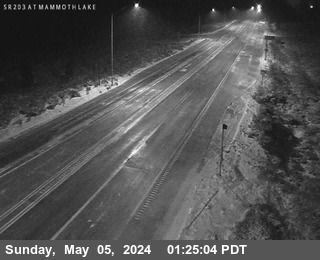Brought to you by Howard Sheckter
Archive for year 2013
Dry Conditions Return to the Eastern Sierra with near Seasonal Temperatures along with Afternoon and Evening Zypher winds……It will be breezy Wednesday and Thursday…Smoke from Aspen Fire to persist the next few days…..
Monday July 29, 2013
Aspen Fire Incident Update: http://inciweb.org/incident/article/3552/19548/
Tuesday AM Update:
Southwest flow will slowly increase today with the drying trend that began Sunday continuing today…..tomorrow and on into Thursday. High temperatures will range just below seasonal norms with breezier weather expected Wednesday and especially Thursday. By Wednesday, the breezes may actually help to disperse the smoky conditions earlier in the day and suppress any inversions that may set up to a bit later at night. Air Quality appears to be better today then yesterday.
Expect highs in the low to mid 70s in Mammoth with lows in the 40s. Winds will be in the 20 to 25 MPH range and will increase Wednesday into Thursday with gusts to 35 MPH by Thursday. The effects of the wind upon the fire at that location-elevation will not be as significant as the drier air moving into the Sierra, fire-weather-wise.
Looking down the road…….>>>>
In a few days it will be August. For the first of August, the Climo for the Eastern Sierra spells the beginning of the weekly decline in temperatures. Unlike the last two weeks of July when average highs reach up near 80, the average highs in Mammoth are expected in the mid to upper 70s. Hence the days becomes shorter and the nights longer. By the end of the month of August, upper 30s in Mammoth are common in the early morning and daytime highs in the low to mid 70s….then low 70s by Labor Day. and by Mid September upper 60s. Remember, at elevations above 8000 feet, the Climate in the central and northern Sierra is akin to some areas of Canada.
So Summer is now about past its prime……However, even now that it is middle-aged, it can produce some really nice warm days. Because of the forecasted return of the positive upper height anomaly, pushing back into Eastern Ca from New Mexico later next week, the Dweebs expect above normal temps next week with a return of the 80s. As the upper flow backs to southerly, isolated to scattered TSRWs are possible sometime the 2nd half of next week. More towards Thursday or Friday. I “won’t” imagine that the Aspen fire will still be burning by then.
The Dweebs are beginning to think about what the winter of 2013/14. What will it be like? Based upon the reverse of the QBO and how hot this Summer has been so far, the Dweebs believe that the upcoming winter will not be “Anything like the last two”. There are other important changes both hemispherically and SST wise that will be discussed later this Summer and into the Fall. It all looks very promising!!!!!! 🙂
Wax-up up?
The Dweeber……………:-)
—————————————————————————————————————————————————————–
Aspen Fire:
5:25pm Monday Update:
Incident Commander: 4:30pm Monday
Good progress with indirect line is being made on the northwest side of the fire. Indirect line has been completed on the southwest side of the fire. Air resources were grounded most of yesterday because of the inversion lifting late in the afternoon. The Very Large Air Tanker (VLAT)- D.C. 10 was utilized on the fire yesterday. Crews continue to use direct attack when possible. Access to the lower portions of the fire along the San Joaquin River’s edge is an obstacle. Smoke from the fire continues to impact the San Joaquin Valley and Mammoth Lakes.
From (WFORNO)
AN INCREASE IN SMOKE IS EXPECTED AS CONTROL FIRES ARE LIT IN AN EFFORT TO TURN
THE FIRE IN ON ITSELF. CLEAR OVERNIGHT SKIES WILL ENSURE THAT NOCTURNAL INVERSIONS FOR EACH NIGHT TRAPPING THE SMOKE IN THESE AREAS FOR THE NEXT FEW DAYS. AIR QUALITY WILL IMPROVE EACH AFTERNOON
AS WINDS INCREASE AND DISPERSE SMOKE, BUT DECREASES AGAIN OVERNIGHT AS INVERSIONS FORM.
From This morning:
In speaking with a forecaster from the NWS late last night, the fire moved into an area of dense fuel late in the afternoon. So the fire picked up in its intensity. Strong inversions…mainly at night and into the morning hours is keeping smoke near the surface. Strong inversions are expected between 9:00pm at night through much of the morning hours. During the afternoon, especially after 20Z, the inversion should break, giving our area better Visibility. Inversions will once again redevelop the next few nights by 9:00pm. It is possible that if we get enough wind Wednesday night that the winds may give us a break in our area. It is not expected to be windy where the fire is. Just mainly over the highest elevations and along the Lee of the Sierra.
Fire Stats and information at 7:15 AM Monday:
Incident: Aspen Fire Wildfire
Incident Statics
Acres Burned: 11019
Structures Threatened: 3
Containment: 20%
Structures Damaged: 0
Fire Start Date: July 22, 2013
Injuries: 0
Fire Cause: Lightning
Total Personnel: 1479
Cost to date: $5.7 million
Summary
§ The Fire is located within the Sierra National Forest in Fresno County and is approximately seven miles North of Big Creek. It is currently burning off Stump Springs Road, North of Aspen Springs. The South Central Sierra Interagency Incident Management Team is in command of the Aspen Fire.
§ Over the past several days, the inversion layer has caused smoke to accumulate in the low laying areas of the fire which hampers visibility of firefighters on the ground and in the air. As the smoke clears in the early afternoon, a more defined smoke column(s) may be seen from several miles away.
§ Recreation and businesses remain open in the Shaver Lake, Huntington Lake, Lake Thomas Edison, Florence Lake and the Mono Hot Springs areas.
Fire Update
§ Firefighter and public safety remains the highest priority. Fire crews are being sensitive to environmental and cultural resources in and around the fire area.
§ Due to the extremely steep, rugged and inaccessible terrain, fire crews are using a tactic called indirect attack which creates control lines away from the fires active edge. Air resources, including several helicopters and air tankers are being utilized along the fire-line to slow the forward progress of the fire and to cool down hot spots. As the situation changes and firefighters can safely gain access to the fire, a more direct attack will be implemented.
§ Smoke from the Aspen Fire continues to impact air quality in local communities including Mammoth Lakes South of Mono Lake. Individuals sensitive to smoke are advised to remain indoors and keep windows closed to minimize exposure to smoke.
Your link for the most updated information: http://inciweb.org/
Dr Howard and the Dweebs……………………………:-)




